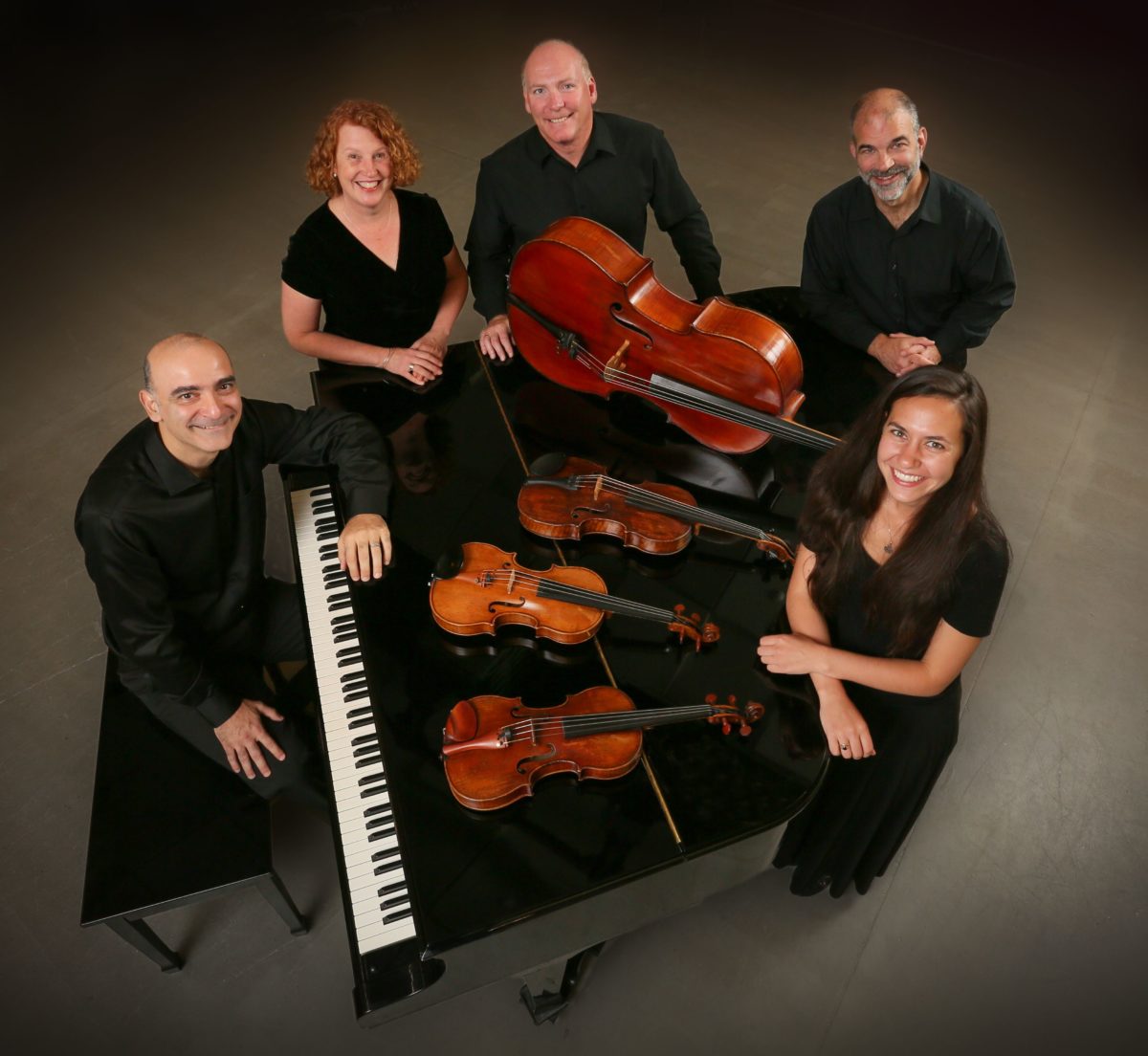Walking into Dr. Martin Kutnowski’s office, it’s easy to tell he’s an artist. Shelves overflowing with books, racks of CDs and sheet music stacked high atop a piano are all clear indications of a passionate soul.

Martin Kutnowski is a composer, musician, and professor of the Fine Arts at St. Thomas University. He’s also recently been nominated for Best Classical Composition during East Coast Music Week in Sydney, N.S. for his piano piece “Peter Emberly’s Dream”, which he’ll perform alongside N.B.’s Saint John Quartet at the East Coast Music Awards ceremony.
Kutnowski said he was both excited and honoured when asked by the East Coast Music Association to perform.
“It’s nice… some recognition, I feel happy for me but also very happy for the quartet because they’ve worked very hard – it’s a long term career that they have here in Atlantic Canada,” he said.
Originally from Argentina, Kutnowski lived for many years in New York, receiving his doctorate and going on to teach music for many years.
However, when he heard of the opportunity to create a Fine Arts program at St. Thomas University, he said he jumped at the chance to put his 20 years of teaching experience to developing a new program.
“I felt ready to build something, because I felt that I could really use the experiences I already had, in terms of the opportunities afforded by something that is new,” Kutnowski said.
Building a small arts department from scratch compared to joining a department with 20-30 faculty members in a larger institution had its advantages and disadvantages, Kutnowski said.
He said the interaction between a large team is nice, but it can stifle the opportunity to expand what subjects you get to teach, because everyone is a specialist.
“A small department gives you the luxury really, of exploring stuff and in many cases learning with the students. It gives you the freedom that perhaps [wouldn’t be found in] much larger institutions,” he said.
It’s the small size of STU’s Fine Arts program Kutnowski said allows him to learn alongside his students. Having the same students from their first to fourth year enables Kutnowski to watch them grow as musicians, while expanding his own interests.
“Teaching really is a form of schooling for the teacher, you really learn a lot from the students and from their interests, because they force you to expand to things you have not thought about before.”
As an example, he talked about an Italian opera class he held this year, and how several of the pieces the class is studying were unfamiliar to him.
“It keeps it all fresh for me, it keeps it exciting and I’m not just repeating something I’ve known forever, but rather something I’m discovering with them,” he said.
Kutnowski admits his own interests are eclectic, from music to literature and even science.
“I’m not just a composer. I’m a composer, a pianist, a theorist, I love literature, and I’m very interested in science. I’m not a one-trick monkey.”
As far as composing goes, he said he tends to use what he calls ‘method composing’ when writing a piece. This method consists of writing for someone, either a commissioner, or a colleague he’s working on the piece with. This intent helps him create pieces that fall within the person or group’s musical abilities.
With “Peter Emberly’s Dream,” Kutnowski said he was drawn into the story behind the Miramichi, N.B. folk song, “The Ballad of Peter Emberly,” which tells the tale of a tragic death of a young lumberjack in the 1880s and the community that mourned him.
“The method composing – it’s almost like I’m creating a character, or like I’m writing a story,” he said.
Kutnowski’s piece was originally commissioned by a U.S. conservatory but was revamped for the Saint John String Quartet, with an original piano part played by Kutnowski to go along with it.
Kutnowski said he has a strong relationship with the quartet, which he has been working with for three years.
The quartet’s album Montages, on which “Peter Emberly’s Dream” is featured, has also been nominated for the East Coast Music Awards Classical Recording of the Year.
Kutnowski said there is a mutual understanding between musicians, because they share the same passion for their life’s work.
“All I know, for sure, is that I love what I do. That I know. And I love working with people. Those are the things I know. You can feel these butterflies in your stomach, it’s almost like being in love,” he said.
